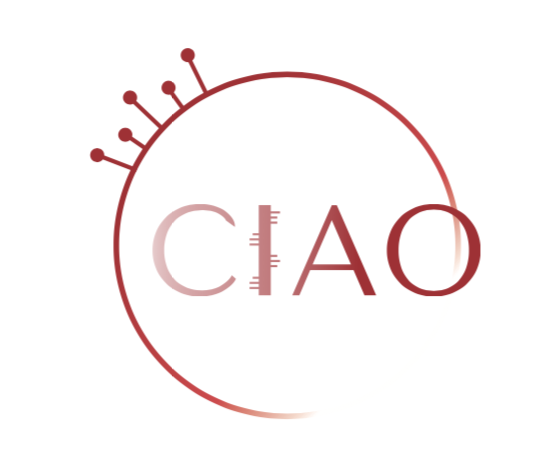
The CIAO (Modelling the Pathogenesis of COVID‑19 using the Adverse Outcome Pathway Framework) initiative addresses a pressing issue in COVID‑19 research: Making sense of the overwhelming flood of information that is produced and published every day.
CIAO collects relevant knowledge that becomes available on COVID‑19 over time, organises it in a coherent fashion, and makes it publicly available to the scientific community, such as researchers and clinicians.
CIAO aims to act as a point of reference for anyone with a scientific background who wants to get a quick, but fact-based overview of what happens when SARS‑CoV‑2 infects the human organism. In a roundabout way, via better informing the research community, CIAO can ultimately also impact health-care and policy decisions.
Focusing on the mechanistic aspect of the collected COVID‑19 knowledge helps with our understanding of the causal relationships between the individual stages of the disease, as well as the factors that influence – in a good or a bad way – the ultimate clinical outcome.
How can CIAO help the COVID‑19 research community?
CIAO curates and consolidates relevant COVID‑19 knowledge stemming from various disciplines and specialists, and presents it in a way that is understandable and usable by a wide range of scientists from different research domains.
Starting from this interdisciplinary overview, CIAO zooms into more specialised knowledge by summarising the available information and pointing to relevant third party sources.
Making sense of the available knowledge will help researchers or medical professionals dealing with COVID-19 to make recognisable progress:
- raising awareness of knowledge gaps to point out additional research needs,
- highlighting the repurposing potential of suitable existing drugs, or
- identifying relevant biomarkers of the disease progression
are examples of where CIAO is of great value for public health and policy decision makers.
The Adverse Outcome Pathway (AOP) framework
In order to achieve this, CIAO project makes use of Adverse Outcome Pathways (AOPs), which are part of a well-established knowledge collection, management, and dissemination framework.
In general, every AOP describes a series of events occurring in an organism, causing an adverse outcome like a disease or death, and the concept originally developed in the toxicology area is now applied to the COVID‑19 research.
The AOP framework is steered at OECD level, and the JRC is an important player in its further development.
AOPs and the CIAO project
Applying the AOP approach, we are depicting how COVID‑19 develops from the very first interaction of the SARS‑CoV‑2 virus with the organism over a series of key events finally leading to one or several of the well-known COVID‑19-related adverse outcomes, such as lung fibrosis, anosmia (loss of smell) or multi-organ failure.
Assembling an AOP does not necessarily mean producing new knowledge. It mostly consists of finding, curating and integrating relevant knowledge, leaving out misleading or superfluous information.
This addresses a practical but formidable problem with COVID‑19 research: the high number of publications out there makes it challenging to identify quality information, extract the 'signal from the noise', and make the 'good stuff' available to all. This is where the AOP framework can help.
Want to know more?
If you want to know more about CIAO, its current scientific outputs and how you can apply them to your domain of activity, please visit the dedicated project web site: https://ciao-covid.net. There, we also publish updated information on how to contribute and collaborate with us.
